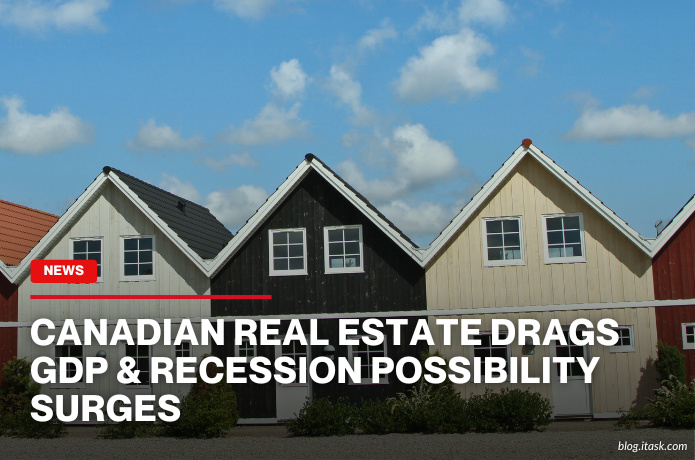Canadian Real Estate Drags GDP & Recession Possibility Surges
Canadian Real Estate Drags GDP & Recession Possibility Surges

Canada's economy is showing signs of strain, with the real estate sector playing a significant role in the recent downturn. In February, the country's Gross Domestic Product (GDP) contracted by 0.2%, marking a notable shift from previous growth trends. This decline was primarily driven by decreases in mining, oil and gas extraction, and notably, the real estate industry. The construction sector, a major component of GDP, experienced a sharp decline due to a slowdown in homebuilding activities. Additionally, services related to real estate, such as commissions and property management fees, saw the steepest drop since 2022, contributing significantly to the overall economic slowdown.
The Bank of Canada (BoC) has acknowledged the increasing probability of a recession. According to its Market Participant Survey for the first quarter of 2025, expectations for a recession within the next 12 months have risen considerably. While easing monetary policy is anticipated to alleviate some pressure and stabilize inflation, interest rates are still projected to remain above 2.0% for the foreseeable future. This suggests that the era of low interest rates may be over, potentially impacting borrowing costs and investment decisions.
A closer look at GDP per capita reveals further concerns. In 2024, GDP per capita fell by 1.4%, indicating that the economy is not keeping pace with population growth. This decline implies a reduction in real income and quality of life for Canadians. Notably, provinces like British Columbia and Ontario have regressed to economic levels seen in 2020, highlighting regional disparities in economic performance.
The real estate sector's downturn is particularly impactful due to its significant role in Canada's economy. The country's heavy reliance on real estate and construction has made it vulnerable to shifts in these markets. As construction activity slows and real estate services decline, the broader economy feels the effects, underscoring the need for diversification and resilience in other sectors.
Government spending has become a primary driver of economic growth, accounting for a substantial portion of GDP increases. In the second quarter of 2024, government expenditures represented 80% of GDP growth. While this spending supports the economy in the short term, it raises questions about the sustainability of growth driven largely by public funds, especially if other sectors remain sluggish.
As Canada navigates these economic challenges, the interplay between real estate, government policy, and broader economic indicators will be crucial. Addressing the underlying issues in the housing market and fostering growth in diverse sectors may be key to mitigating recession risks and promoting long-term economic stability.
